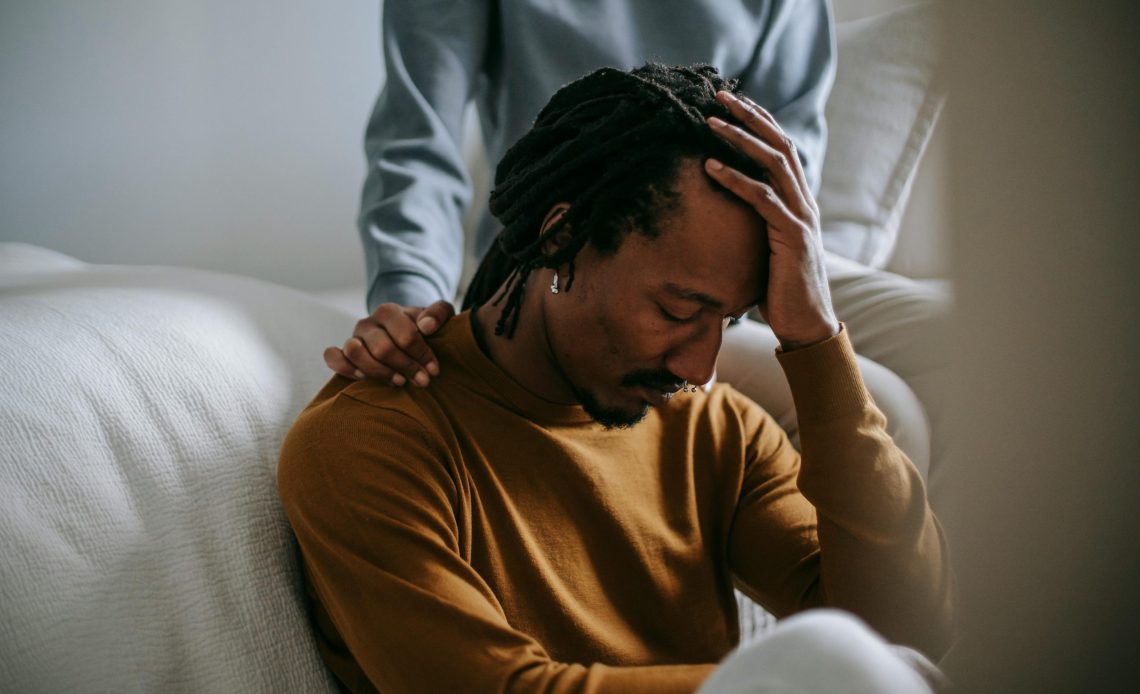
In a world where stress and anxiety are often part of our daily lives, understanding their impact on our sex lives is essential. Let’s find out how these two psychological factors can affect your sexuality , and what strategies can help counter them.

Photo Mart Production
Have you ever felt that your daily concerns were affecting your private time? According to a study by Ifop for Lelo published in February 2024, the proportion of French people who have had intercourse in the last 12 months is at its lowest level in 50 years. Young people are particularly affected.
Stress and anxiety don’t just cloud your mind; they can also have a direct impact on your sex life. From reduced desire to performance difficulties, the effects can be varied and significant. Let’s explore how these mental states influence your sexuality, and how you can overcome them.
The French are having less sex in 2024
In 2024, a recent survey conducted by Ifop for Lelo reveals a considerable decline in sexual activity among the French, reaching its lowest level for 50 years. Only 76% of those surveyed said they had had sexual intercourse in the last 12 months, marking a 15-point drop compared to 2006. This decline is also reflected in the frequency of weekly sexual intercourse, with only 43% of French people reporting this, compared with 58% fourteen years earlier.

Photo Cottonbro Studio
What factors will influence our sexuality in 2024?
In fact, 76% on average, down 15 points since 2006 (when the last major study on the subject was carried out). Annual sexual activity has thus fallen to an even lower level than in 1970 (82%). Today, 43% of French people report having sex on average once a week, compared with 58% in 2009. Competition from screens, the end of “marital duty”, lack of interest in sex, heavy mental workloads..
-
The growing influence of digital media
The growing prevalence of screens and digital media has significantly affected the way young people interact with and perceive sexuality. Indeed, over a quarter of 18-24 year-olds (28%) report having had no sexual intercourse in the past year.
-
Changing social norms
Social movements such as #MeToo have heightened awareness of consent and appropriate behavior. As a result, 52% of women aged 18 to 49 admit to making love without desire, a percentage down on previous years. Goodbye dear orgasm… This change illustrates a gradual questioning of “marital duty”, underlining a shift towards more consensual and desired intercourse.
-
Significant reduction in sexual activity among young people
The decline in sexual activity is particularly marked among young people, despite a generation that is adept at using dating apps: more than a quarter of sexually-initiated 18-24 year-olds (28%) admit to not having had intercourse in one year, five times more than in 2006. Despite the ubiquity of dating apps, French youth are witnessing a marked reduction in sexual activity, often replaced by virtual interactions such as sending erotic messages or photos, thus broadening the definition of sexuality.
-
The undeniable impact of our modern lifestyle
The trend towards less demanding activities such as watching TV series, surfing social networks or playing video games is also a factor. Among young couples, 50% of men admit to having avoided sexual intercourse in favor of these leisure activities.
What we think..
This evolution suggests a transformation in sexual expectations and practices, with an increasing emphasis on the quality of relationships rather than their frequency. Experts stress that this transition could be positive, encouraging more satisfying and consensual experiences. Less is more? Less pressure on sexual performance and more communication and complicity?
This would be a good thing to avoid the sources of stress that can impact your sexuality, as these can be detrimental to your sexual well-being and libido.

Photo Cottonbro Studio
How stress and anxiety can affect your sexuality
Stress and anxiety don’t just affect your peace of mind; they can also have a real impact on your sexual health. From reduced libido to performance problems, the consequences can be diverse and far-reaching.
1. A slow decline in sexual desire
Chronic stress and anxiety can dramatically reduce your libido. When your body is in survival mode, producing adrenaline and cortisol, sexual desire becomes secondary. You may find yourself less interested in sex, which can create tension in your relationships.
2. The dreaded erectile difficulties
Stress and anxiety can also cause erectile dysfunction. Performance anxiety, in particular, is a common form of sexual anxiety that often leads to erectile failure. This vicious circle can be frustrating and may require intervention to break the cycle.
3. Anxious premature or delayed ejaculation
These problems can also be exacerbated by stress and anxiety. Premature ejaculation is often linked to anxiety, while delayed ejaculation can occur when you’re too stressed to fully relax during sex.
4. The inevitable impact on the quality of the relationship
Stress and anxiety not only impair sexual function, but can also affect the quality of your intimate relationships. Communication can suffer, and partners may feel neglected or less connected, leading to a deterioration in the relationship.
Strategies for managing stress and anxiety
You know me, I’m a nice guy, so I’ll give you a few tips for coping bravely.
-
Opt for open dialogue
Talk openly with your partner about your feelings. Mutual understanding and support can help ease the pressure.
-
Try relaxation techniques
Practice techniques such as meditation, yoga or deep breathing to reduce stress.
-
Take upphysical activity
Regular exercise is excellent for reducing stress and improving your general well-being, which can have a positive influence on your sex life.
-
Consider professional counselling
Sometimes, talking to a psychologist or sexologist may be necessary to address the root causes of stress and anxiety.

Photo Gabby K
Last word
Understanding how stress and anxiety affect your sexuality is the first step towards a more fulfilling intimate life. By adopting stress management strategies and maintaining open communication with your partner, you can not only improve your sexual health but also strengthen your relationship. Don’t let stress and anxiety dominate your life; take steps to regain your balance and pleasure. It would be a shame to spoil your pleasure and that of your partner over small details..
XLoveCam is not responsible for the content of the blog which is claimed to be written by an external party.







